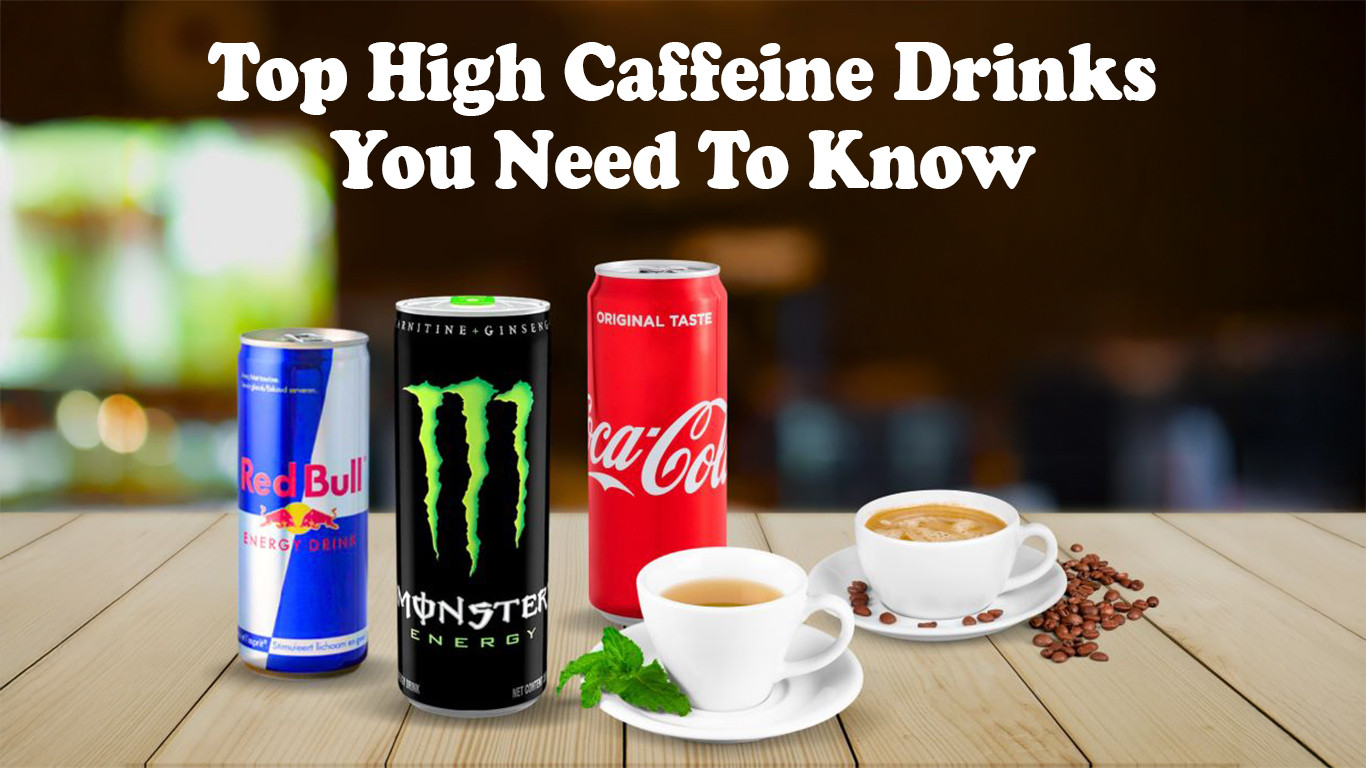In today’s fast-paced world, many people rely on high caffeine drinks to kickstart their day or power through long hours. If you’re looking for a potent dose of this natural stimulant, here are five beverages that pack a punch in the caffeine department.
Top high caffeine drinks
Espresso coffee
Espresso is the powerhouse of caffeine. Each 240ml of espresso coffee contains about 240–720 mg of caffeine – the highest caffeine content drink. This concentrated coffee is made by forcing hot water through finely-ground coffee beans, creating a rich flavour. Due to the short contact time with water, the amount of caffeine in espresso is perfectly retained in the drink. A cup coffee drink of espresso delivers quick and robust energy, making it a favourite among coffee enthusiasts.
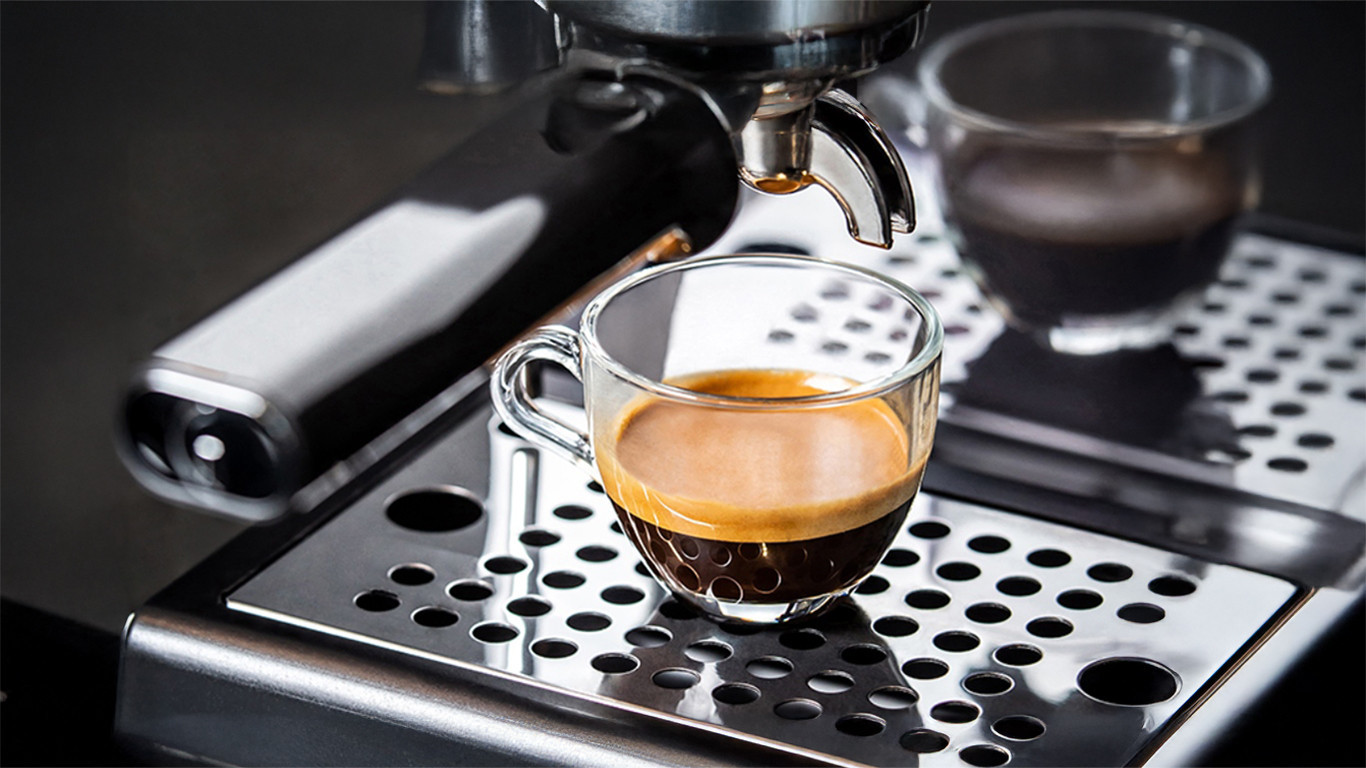
See more: What is The Difference Between Espresso vs Coffee?
Black coffee
For those who like pure coffee, black coffee is the right choice. One cup of black coffee (about 240ml) contains about 70 – 140 mg of caffeine, the average is about 95 mg. Without adding milk or sugar, black coffee allows you to experience the full power of caffeine. Whether brewed with a drip coffee maker or the new cold brew method, black coffee is a strong source of alertness for everyone.
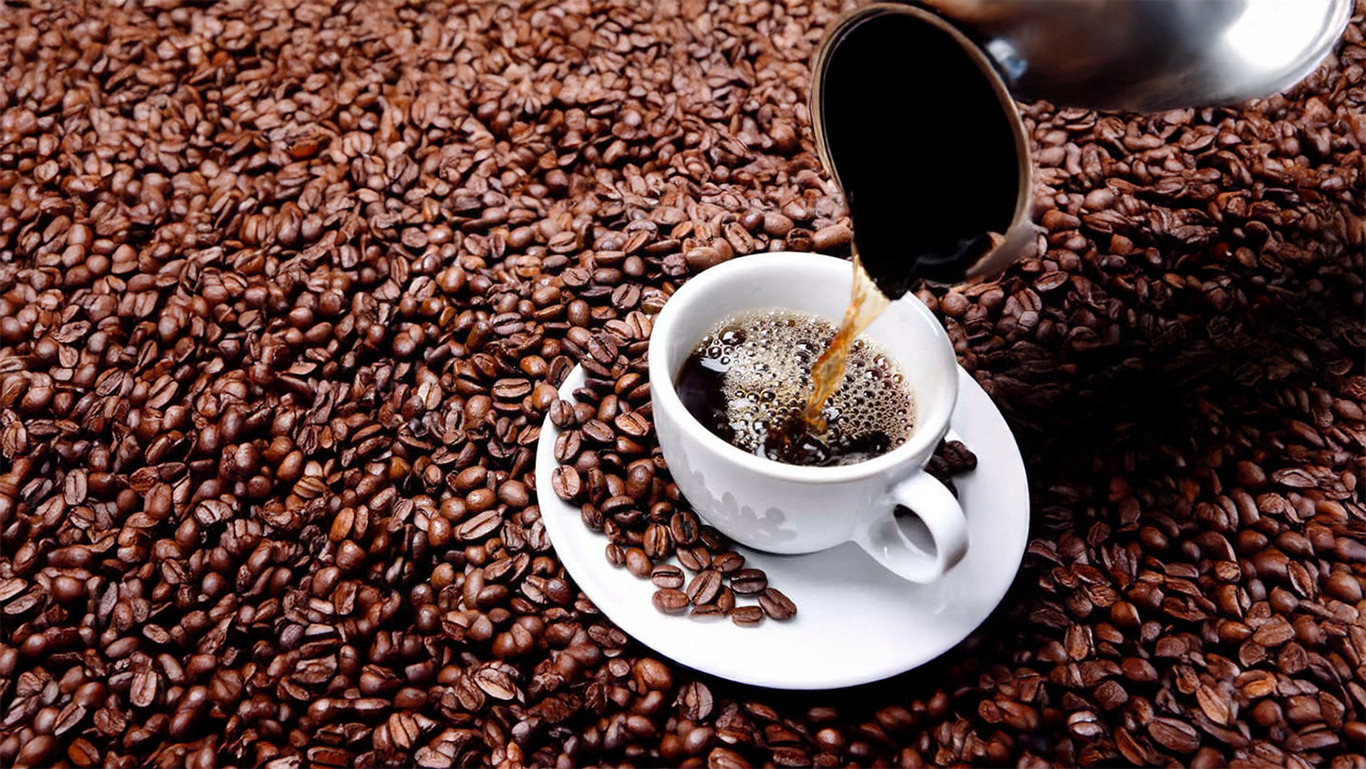
Energy drinks
Popular energy drinks like Prime Energy drink, Red Bull, Monster, and Rockstar are specifically formulated to provide an instant energy surge. Packed with 50–160 mg caffeine per 330ml can, these beverages often include additional ingredients such as taurine and B vitamins to enhance their energizing effects. However, moderation is key due to their higher sugar and calorie content.
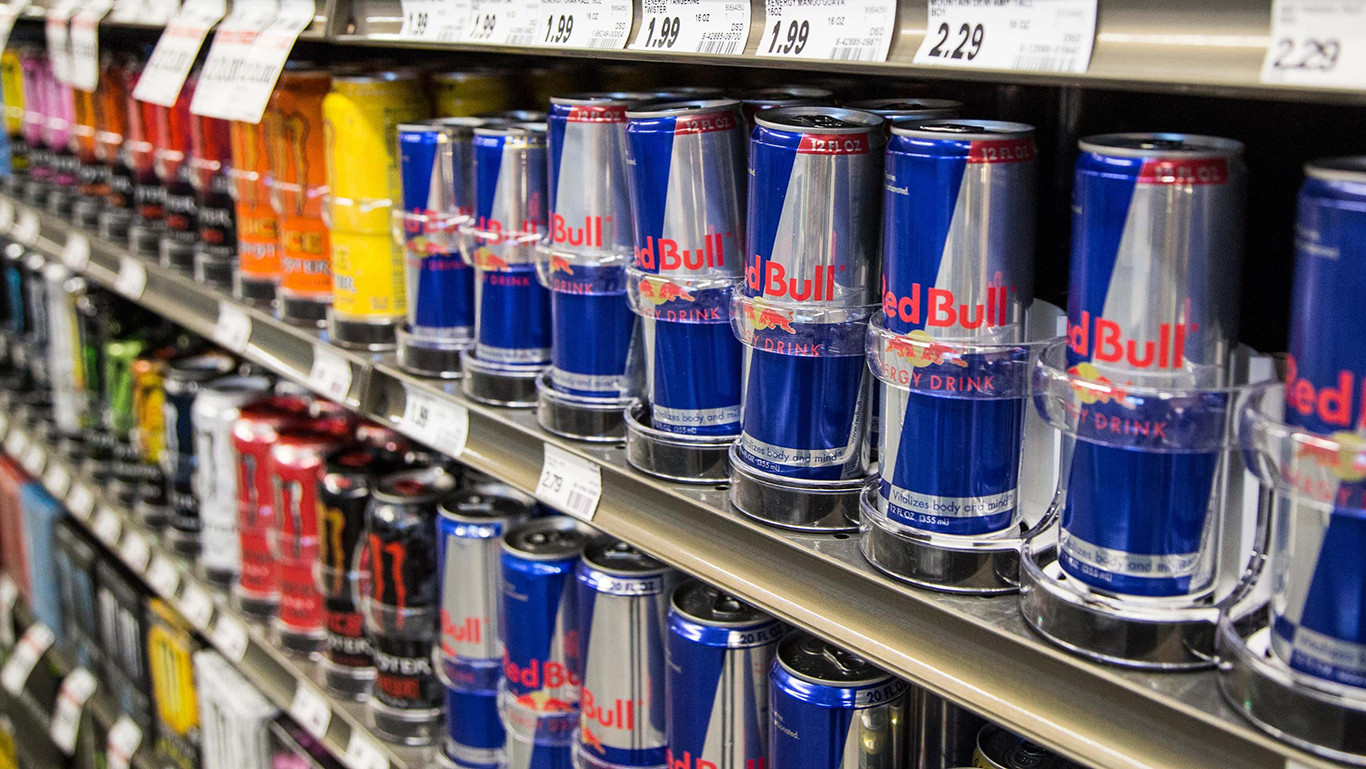
Tea drink
While not as high in caffeine as coffee, tea still packs a punch of caffeine. The caffeine content in tea leaves is (3.5%), mate tea leaves are (0.89-1.73%). According to research by the Department of Food Technology and Biotechnology, University of Zagreb, Croatia, white tea contains the highest amount of caffeine (4.55%) and the lowest amount of mate tea (1.05%) and oolong tea from 2.04% (green tea) to 3.86% (black tea). The amount of caffeine in 210 ml of tea is 30-70 mg. The brewing process involves pouring boiling water over tea leaves, resulting in a flavorful and energizing beverage. It’s an excellent alternative for those seeking a milder boost with additional health benefits.
However, tea contains caffeine inhibitors, so you will feel “smoother” when you drink it. You can replace it with sencha or matcha tea, and it will still taste like drinking fresh tea, and 1 liter of water only requires about 10 grams of tea.
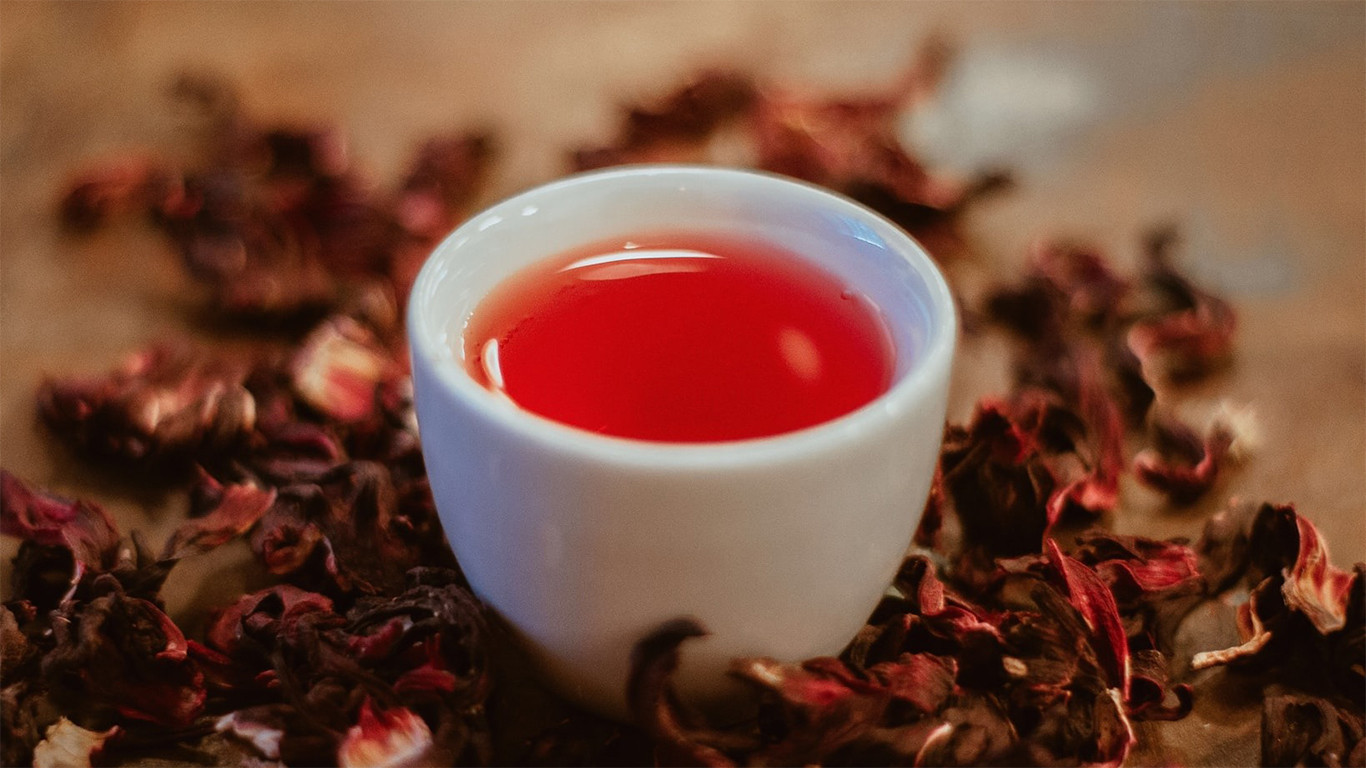
Cola drink
Cola drinks, like Coca-Cola and Pepsi, are not just about the fizzy bubbles. They also contain caffeine, providing a quick pick-me-up. 9.6 – 12.8 milligrams of caffeine per 100ml serving or 24 – 32mg per 250mL cup, less than instant coffee but enough to make you awake for a long day.
Although cola drinks often bring a feeling of refreshment and enjoyment, you should pay attention because beverage manufacturers usually add sugar to their products if you are a dieter.
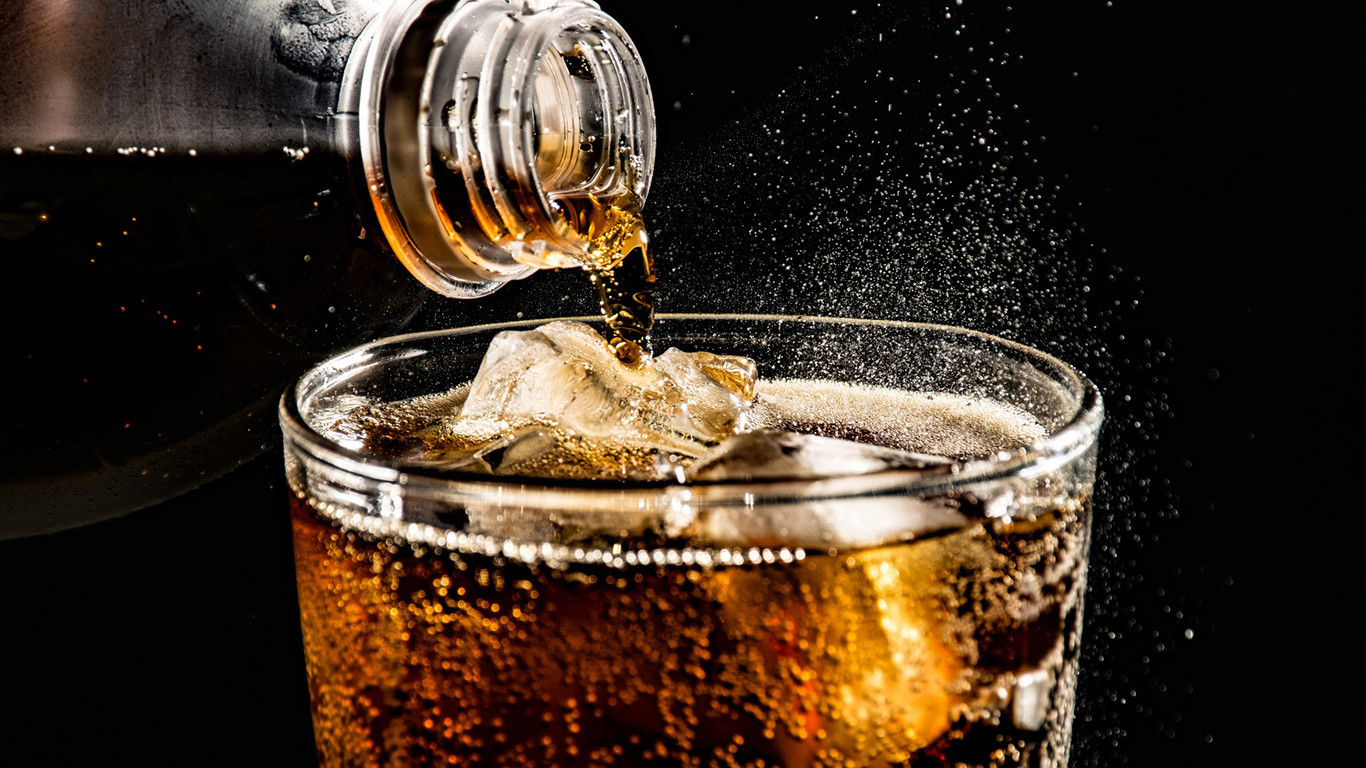
Nitro cold brew
Nitro cold brew is a contemporary variation of cold brew coffee, infused with nitrogen gas to achieve a creamy texture and a subtly sweet flavor. It delivers a significant caffeine boost, making it an interesting choice for coffee enthusiasts. Caffeine content ranges from 215 to 280 mg per 16 oz. It’s ideal for those who enjoy novelty in their coffee experience and appreciate a smooth, creamy finish. Overall, its flavor is rich and velvety, providing a unique drinking experience.
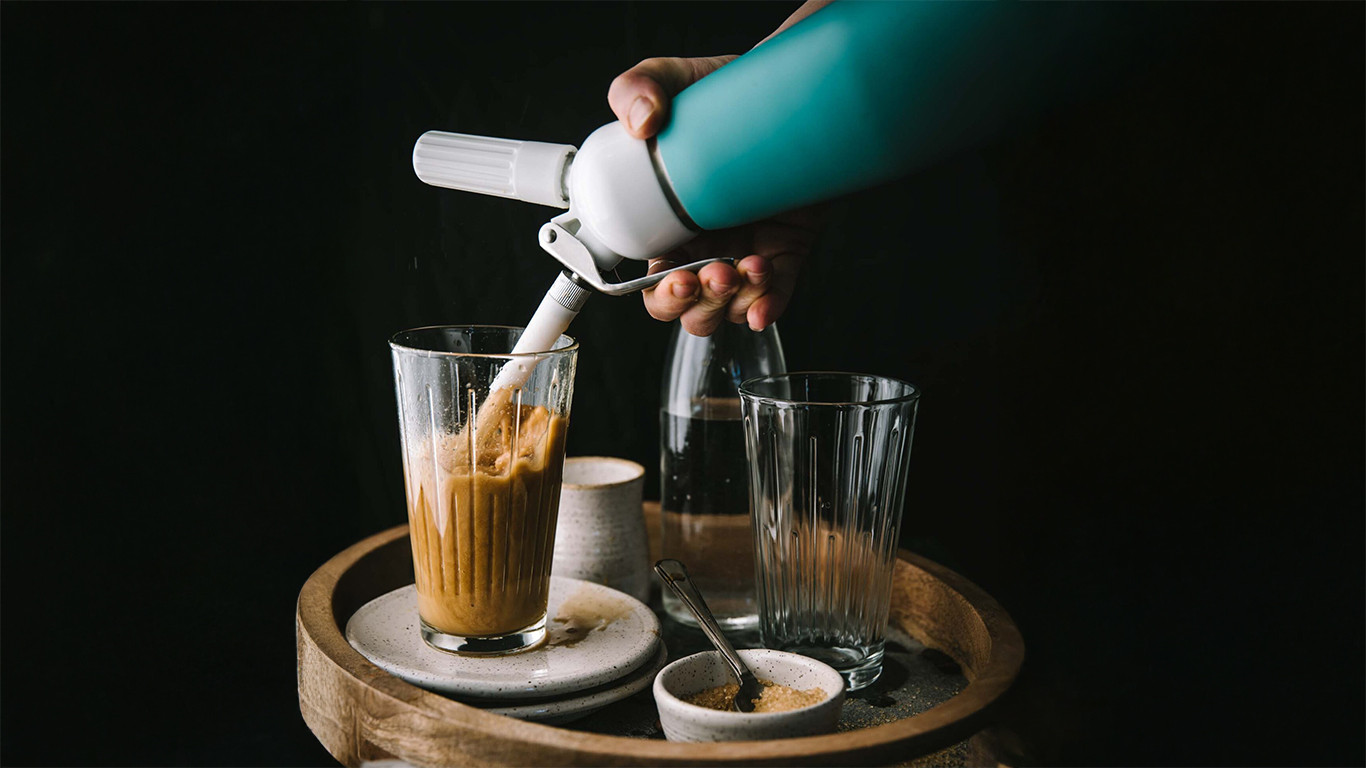
Yerba mate
Yerba mate is a beverage made from the leaves of South American holly, known for its natural caffeine content and distinctive flavor profile. Caffeine, theobromine, and theophylline provide a balanced energy boost. The caffeine content is approximately 85 mg per 8 oz serving. Yerba mate is ideal for long study sessions or casual sipping, and its flavor is herbal with a slight bitterness.
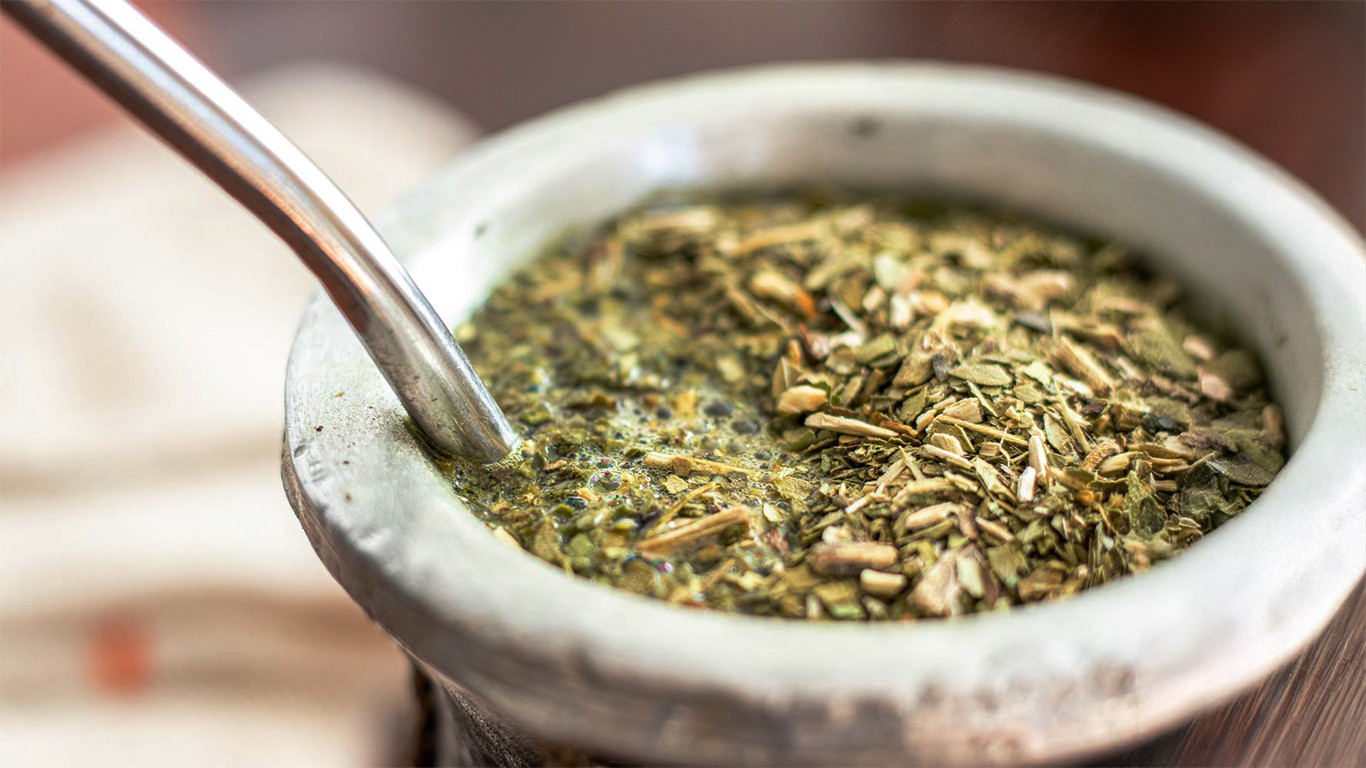
Sparkling caffeinated water
Caffeinated sparkling waters, such as AHA or Bubbly Bounce, provide a refreshing and lighter option than traditional energy drinks. With 30-70mg of caffeine per 12oz, they’re ideal for staying hydrated while enjoying a mild energy boost. Their flavors are subtly fruity and delightfully fizzy, offering a more nuanced taste that’s neither overly sweet nor artificial.
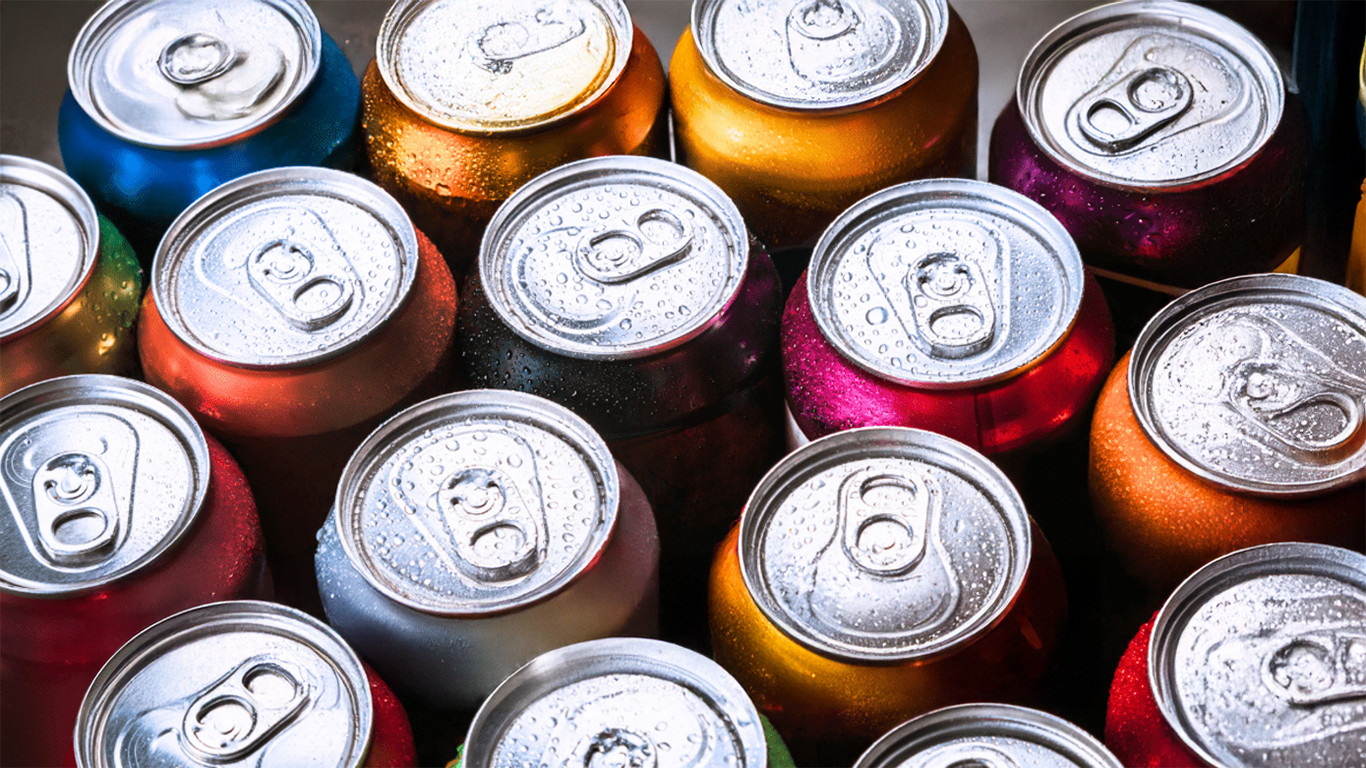
Guayusa tea
Guayusa is a traditional tea from the Amazon made from the leaves of the Guayusa tree. It provides a smooth energy boost without the bitterness often associated with coffee or traditional teas. The caffeine content is 90 mg per 8 oz. This tea is best enjoyed during early morning rituals or for mindful sipping. Its flavor is mild, earthy, and slightly sweet.
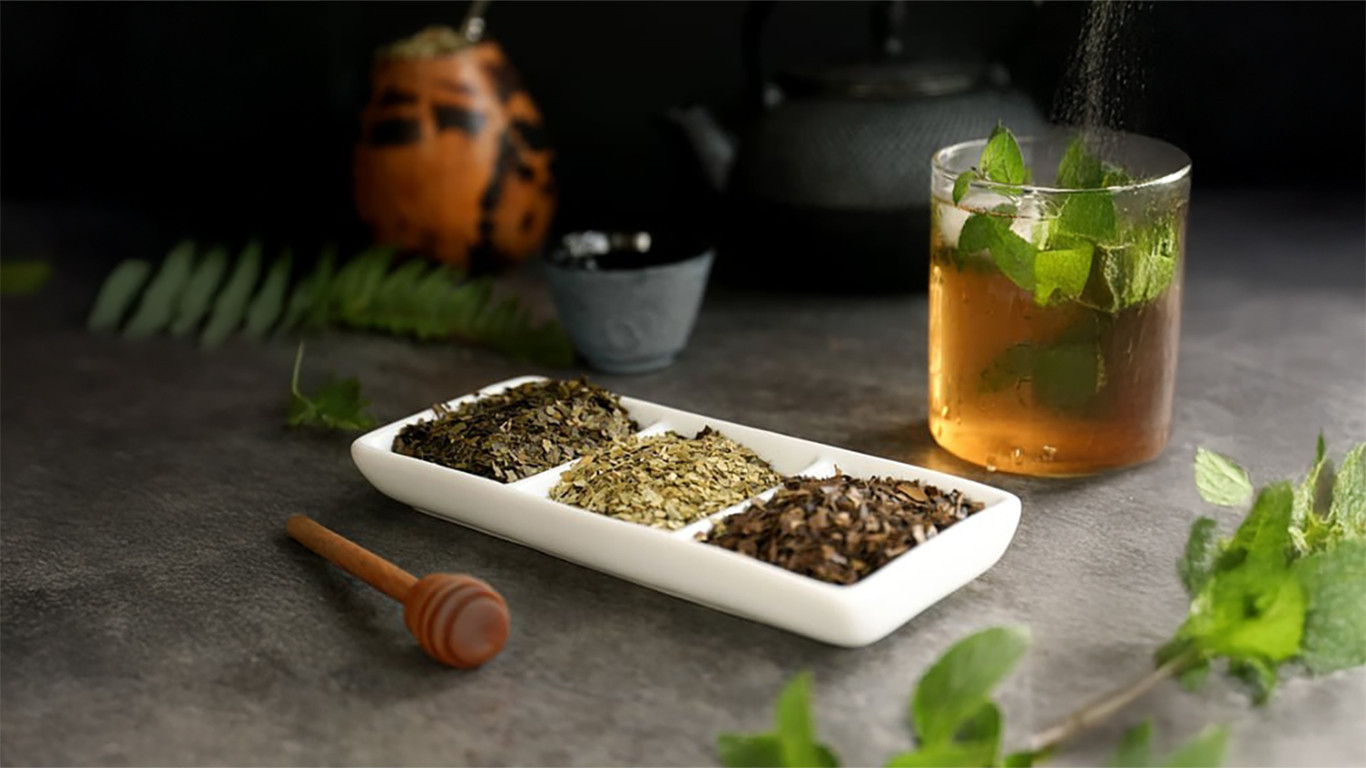
How many caffeine that can be used in 1 day
Adults should not consume more than 400mg of caffeine/day. Pregnant and breastfeeding women should consult a medical professional about using caffeine. For children, the American Academy of Pediatrics recommends that children and adolescents should not use drinks containing stimulants.
The World Health Organization (WHO) does not classify caffeine as an addictive substance. To date, there are still no clear signs proving that caffeine is harmful to health, even in cases of regular use of caffeine over a long period.
Above, 43 Factory Coffee Roasters has just sent readers the caffeine content in tea and coffee. Thereby, we can see that there are many types of drinks containing caffeine, not just coffee. Those who are sensitive to this substance should pay attention to controlling the content.
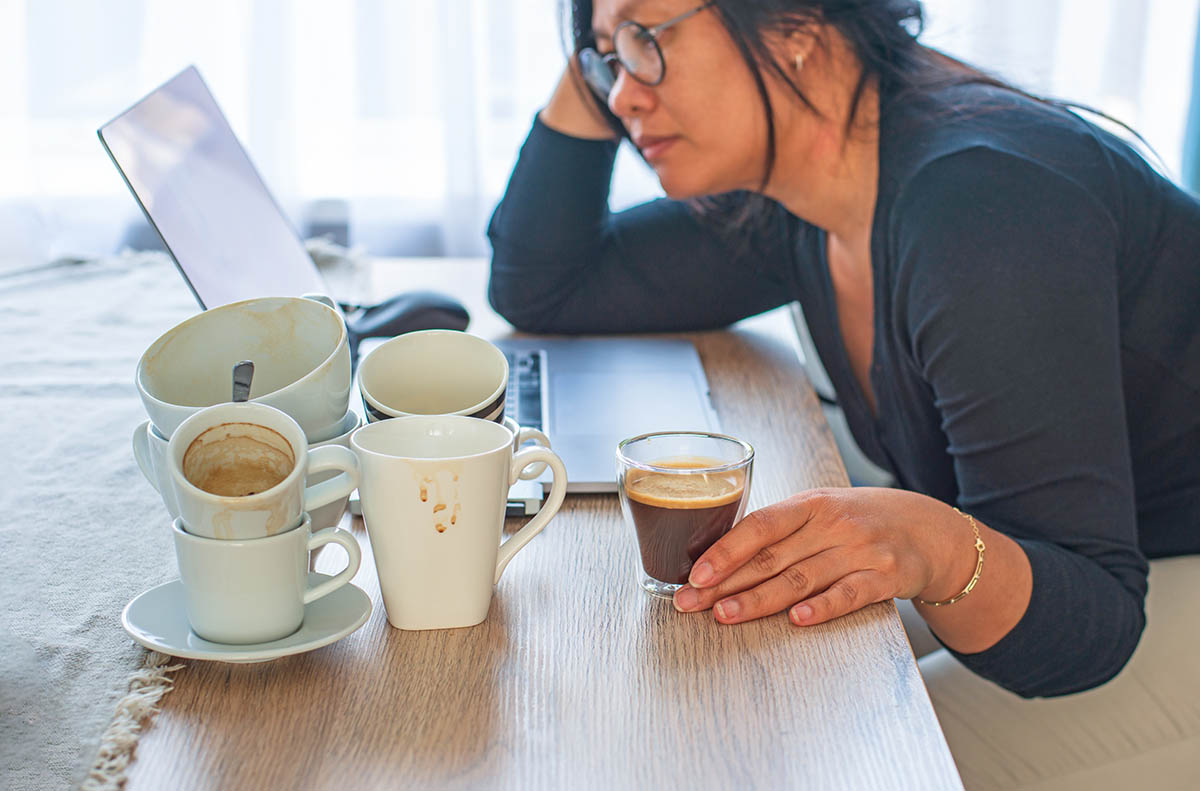
As you explore these high caffeine drink options, remember that individual tolerance levels vary. Enjoying these beverages in moderation is crucial to reap the benefits without experiencing adverse effects. These drinks offer diverse ways to stay energized and focused throughout your day.

